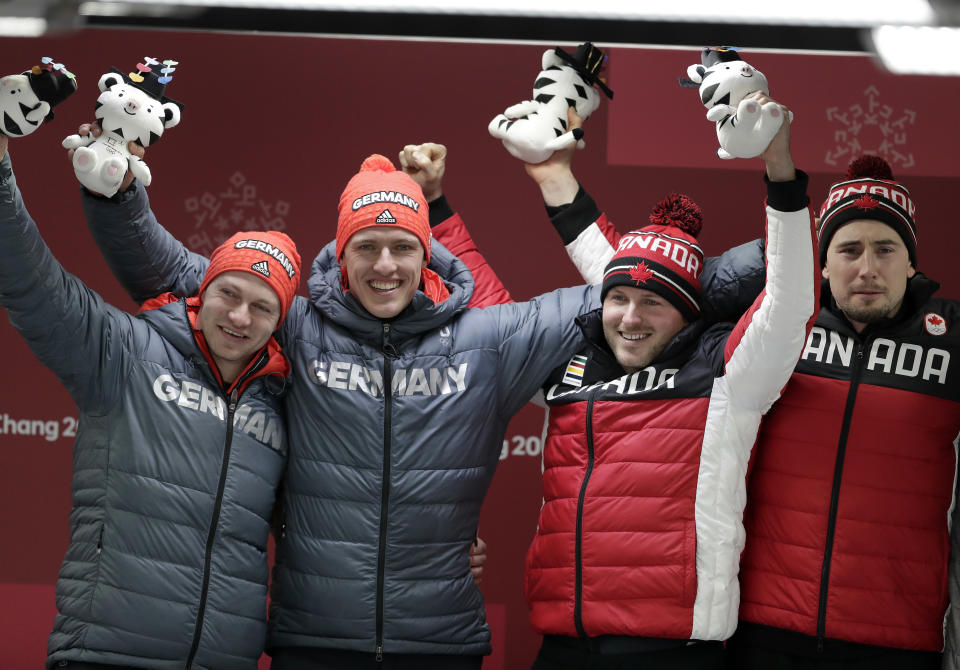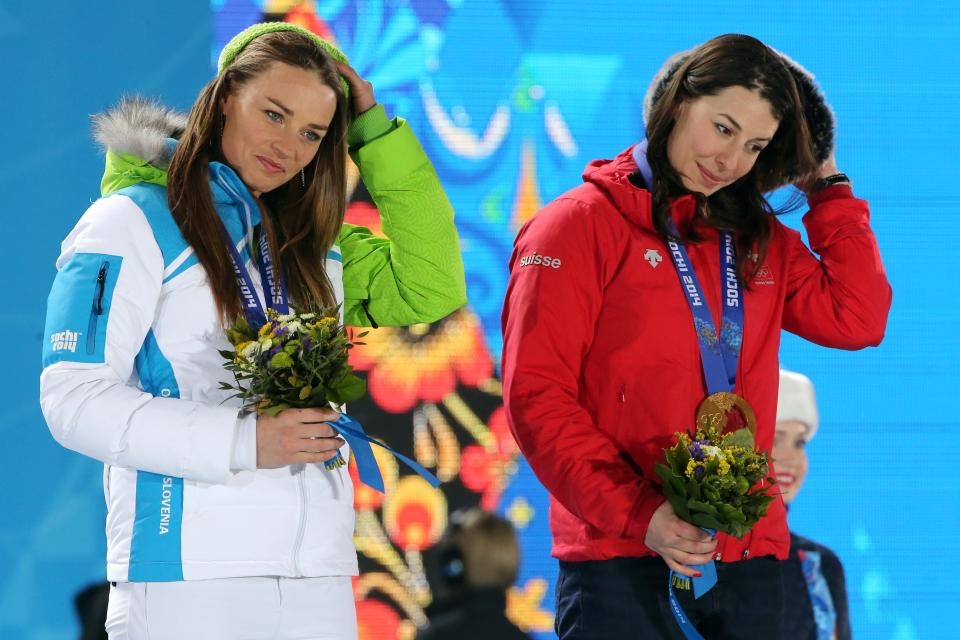Mystery solved: What happens when there's a tie in the Olympics?
When all is said and done, ties are really just the unappealing result of an absence of certitude, which is why they’re such tough pills to swallow for fans and athletes alike, particularly in individual sports. However, while it may seem counterintuitive to the spirit of an athletic competition that awards medals for first, second and third place, ties actually do occur at the Olympics.
Like Monday in the 2-man bobsled, when after four runs Canada and Germany both posted combined times of 3:16.86. It’s the tenth Winter Olympics tie since the 1998 Nagano Games.
So what happens in the case of a tie? Who gets gold, silver, bronze?
If a pair of athletes or two teams tie for first-place, they each receive a gold medal, no one is awarded silver and the bronze is awarded to the runner-up. This was the case during the women’s downhill final at Sochi in 2014 when Slovenia’s Tina Maze and Switzerland’s Dominique Gisin both crossed the finish line with a time of 1:41.57. They were both awarded gold medals and the runner-up, Switzerland’s Lara Gut, took home bronze with her time of 1:41.67.
Monday, Canada and Germany took home gold, while Latvia grabbed the bronze.

If a pair of athletes tie for second place, they are each awarded a silver medal and there is no bronze given out. This occurred most recently at the 2010 Vancouver Games in the men’s individual biathlon. Emil Hegle Svendsen of Norway finished with the best time to win gold. Both Sergey Novikov of Belarus and Ole Einar Bjørndalen of Norway finished with exactly the same second-place time, so they each won a silver medal and no bronze was awarded.

If a pair of athletes tie for third-place, they are each awarded a bronze medal and gold and silver are awarded as per usual to the first and second-place finishers. This situation played out in PyeongChang on Saturday when Norway’s Marit Bjørgen and Finland’s Krista Pärmäkoski both crossed the finish line with a third-place time of 25:32.4 in the women’s cross-country 10km freestyle. They each won bronze, Sweden’s Charlotte Kalla won the silver medal with a time of 25:20.8 and Nowary’s Ragnhild Haga won gold with a time of 25:00.5.
More Olympic coverage from Yahoo Sports:
• Ligety’s son doesn’t care that ‘daddy sucked at work today’
• British short-track skater Christie doubtful for 1,000M after injuring ankle
• Wetzel: Nagasu was once an Olympian hidden in plain view
• Passan: Why Kenworthy’s celebratory kiss is kind of a big deal
• Olympian has sudden, surprising reunion with estranged mom


